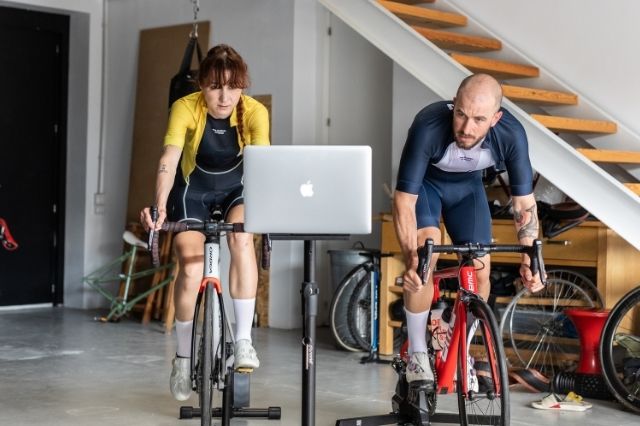Carbohydrates are our main source of energy for carrying out physical exercise. Although they are defined as a fundamental nutrient for any athlete’s diet, whether amateur or professional, there is a great variety of theories about the moment to consume them: before or after training? Today we are going to solve it.
Why are carbohydrates so necessary?
First of all, it is important to understand why these macronutrients are indispensable in an athlete’s diet, despite their detractors.
The mandatory presence of carbohydrates in the daily intake is due to the benefits they offer:
- Provide energy to meet the increased energy demand.
- Optimise glycogen deposits.
- Favour muscle recovery after physical activity.
- Configured as a source of energy during training and competition.
- Quick and easy source of energy between meals to maintain blood glucose levels.
For these reasons, it is recommended that carbohydrates occupy between 55 and 60% of the daily caloric intake. This percentage is easy to achieve by averaging four daily servings of carbohydrate-rich foods.
Bread, cereals, milk and its derivatives, different types of pasta and fruit are examples of foods rich in carbohydrates that you can consume in the indicated proportion.
Carbohydrates: before or after training?
To be straightforward, it is best to consume carbohydrates before training. Different doctors and nutritionists consider this to be so. Why? The answer is simple. These foods provide a large amount of energy. If they are consumed before training, the muscles will use all that energy to perform the physical exercise at the highest level.
Basically, the idea is to provide the muscles with the necessary energy, not only so that they are capable of enduring the workout, but also so that they can do so while performing at the highest possible level.
However, this carbohydrate intake must come from complex carbohydrates (starches) and natural sugars instead of processed and refined sugars.
Carbohydrates also after training
Although it has been pointed out that it is more appropriate to consume carbohydrates before exercising to provide sufficient energy, it is also advisable to ingest them afterwards.
The body has used up glycogen stores during physical exercise and it is necessary to replenish them in order for the body to function at its best. Within 40 minutes after training, experts recommend eating simple carbohydrates to provide an immediate source of energy substrate to the muscle cells so that they can begin an effective energy recovery.

What foods to eat after training?
In addition to proper hydration with water, isotonic drinks or fruit shakes, which we have already discussed at BKOOL, it is advisable to eat a large amount of protein and carbohydrates.
Some athletes opt for a quick digestion and drink drinks rich in carbohydrates. Other alternatives are fruit, rich source of simple carbohydrates, cereal bars or nuts. The latter are very nutritious options and ideal for recovering reserves.
Protein is also important for replenishing energy. Tuna, vegetables, yogurt or banana are some foods suitable for after training.
Some experts have indicated that the rate of muscle glycogen recovery is four times higher if carbohydrates and protein are combined than when either nutrient is administered separately.
Conclusions
There should be no doubt that carbohydrates should be part of your diet. Now, to organise your eating habits you must take into account what we have explained:
- – Before training: complex carbohydrates.
- – After training: simple carbohydrates and protein.
If you are going to do a long and intense training, it is also appropriate to include carbohydrates during exercise. Don’t forget to grab an energy bar before you get on the smart trainer and start your BKOOL session.













